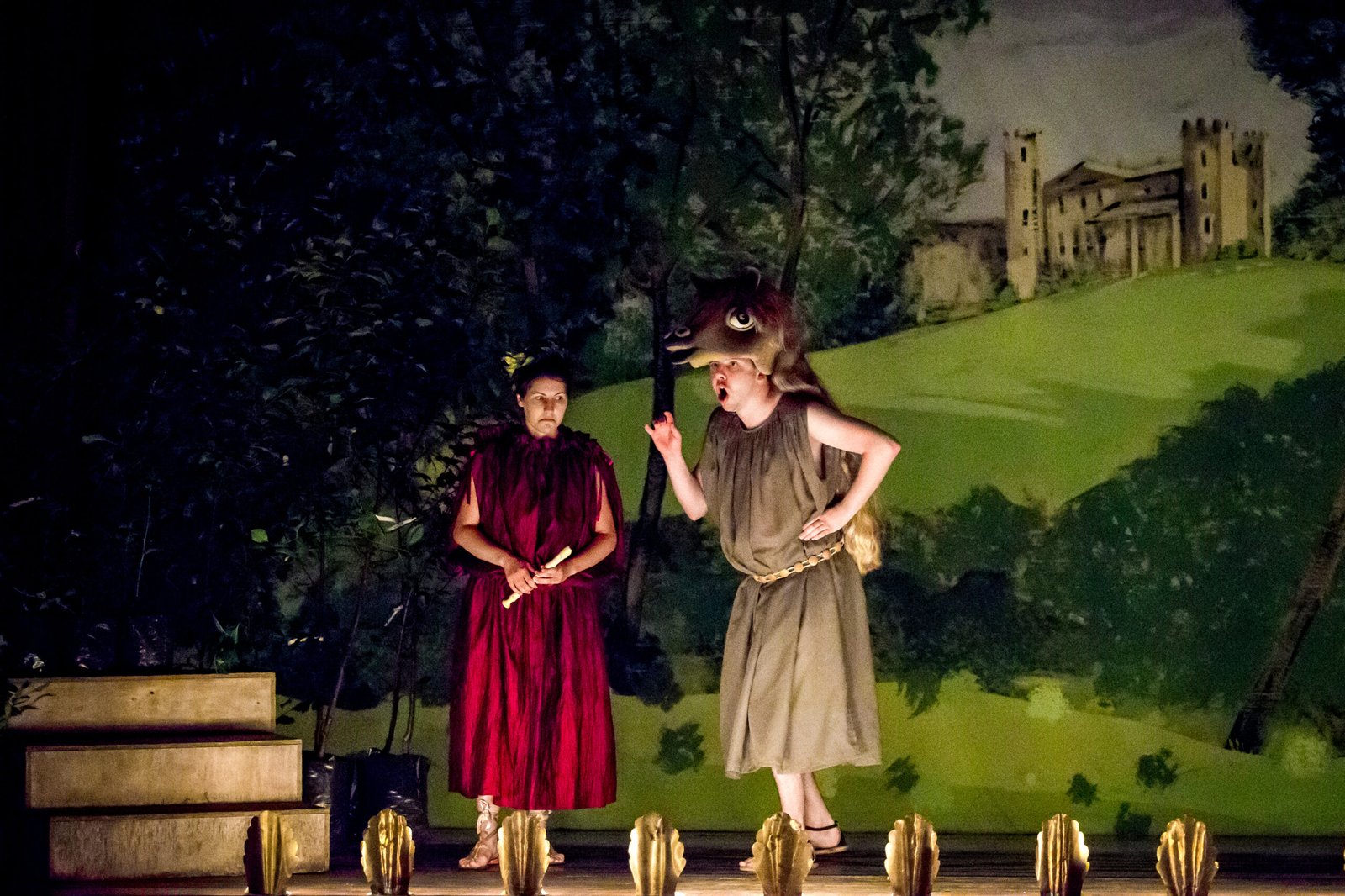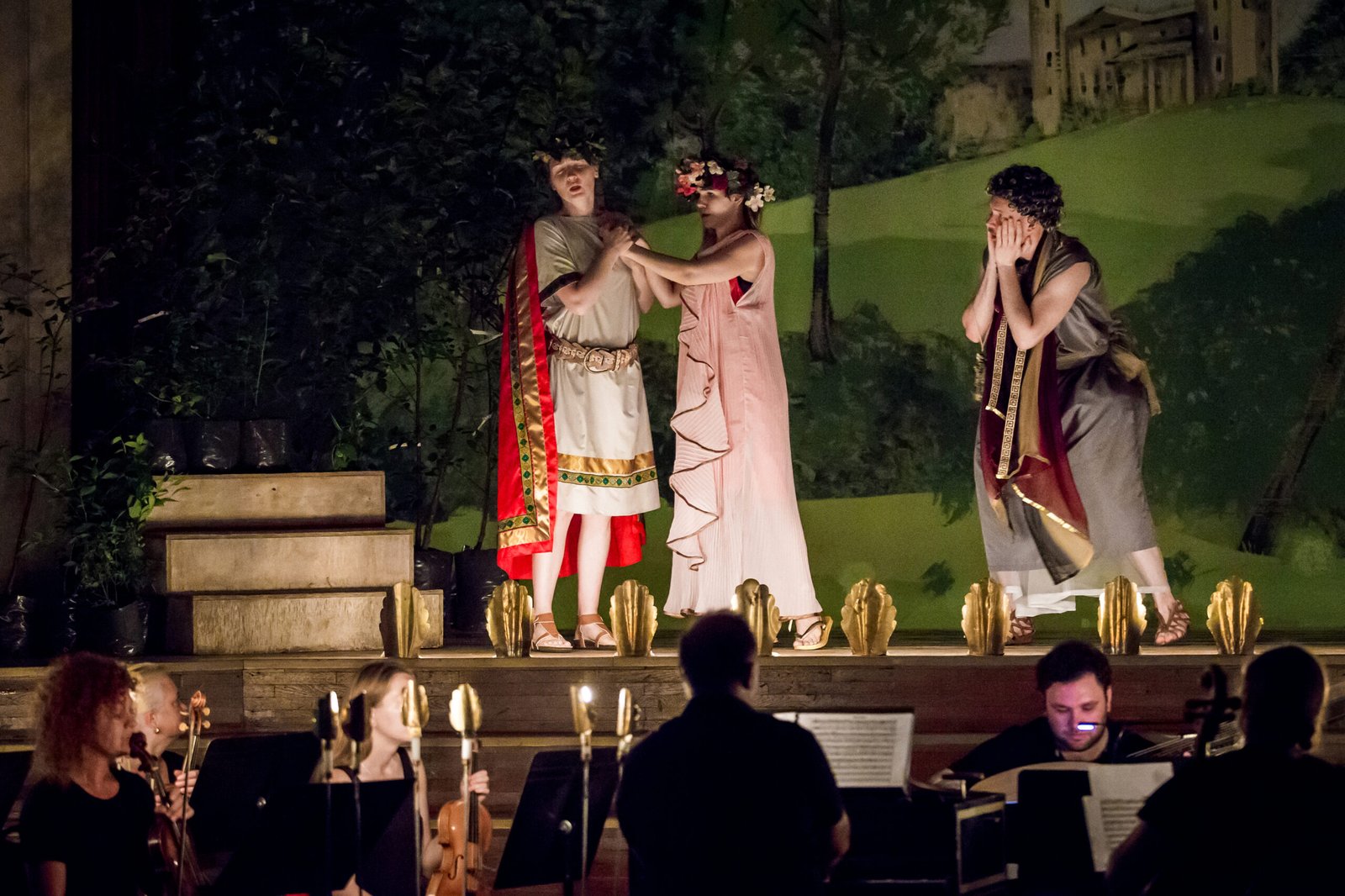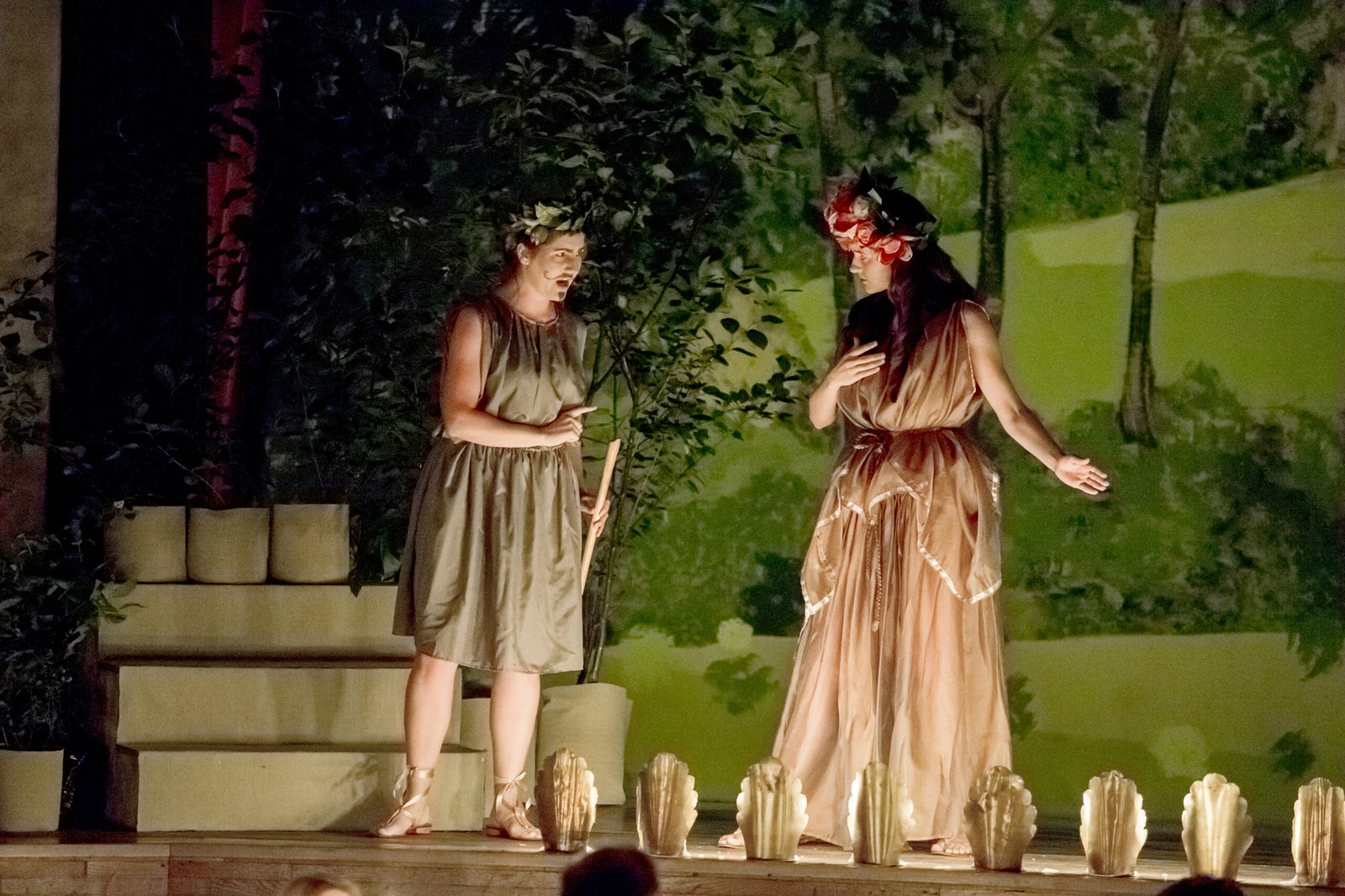Antonio Sartorio. L’ORFEO (1672)
Opera production
The love triangle, jealousy, the language of symbols and the victory of love!
For centuries, the myth of Orpheus, who frees his beloved Eurydice from the underground kingdom by singing and lyre sounds, is commonly known in the works of Claudio Monteverdi. The Italian composer Antonio Sartorio (1630 – 1680) approached the story with a completely different scope. His opera L’ORFEO is one of the first representatives of the transitional style of 17th-century Italian opera, deviating from the “harsh” principles of the drama of the early Florence / Venice opera and the means of expression of the Greek tragedy-type musical drama. With a clear division between arias and recitative, the work marks the transition of the style from Francesco Cavalli’s Venetian opera style to the new form – opera seria, while Sartorio has taken care of the show’s effectiveness with peculiarly interesting and atypical characters, such as a gypsy in Greece. The opera was first performed at the Teatro San Salvatore in Venice in 1672. This is a time when theaters are becoming more and more accessible to a wider audience, breaking down the boundaries between the aristocracy and the lower classes.
Aristeo is Orfeo’s brother and he too is in love with Euridice, which makes Orfeo jealous. Aristeo rejects the love of Autonoe who disguises herself as a gypsy to be near him and enlists the help of Achille and Ercole. The jealous Orfeo plans to have Euridice murdered in a forest but Euridice dies when she steps on a snake while trying to flee Aristeo. Orfeo sets off for the underworld to bring Euridice back to life. Pluto, the ruler of the underworld, is won over by his singing and releases Euridice on condition that Orfeo does not look at her before they have reached the land of the living. But Orfeo turns round and Euridice is lost again.
(Libretto by Aurelio Aureli)
CAST
Soloists:
Ilze Grēvele-Skaraine (soprano)
Monta Martinsone (soprano)
Rūta Vosyliūtė (soprano, Lithuania)
Ieva Sumeja (soprano)
Anete Viļuma (soprano)
Simona Jocevičiūtė (soprano, Lithuania)
Silvija Sūna (mezzo-soprano)
Ansis Bētiņš (tenor)
Edgars Skarbulis (bass)
Krišs Pozemkovskis (bass)
Baroque orchestra COLLEGIUM MUSICUM RIGA
Baroque dance group led by choreographer Guna Ezermale
Historical gestures: Katerina Antonenko (Great Britain/Russia)
Costume designer: Jeļena Forste
Stage director: Artūrs Arnis
Conductor & artistic director: Māris Kupčs
Main supporter:
State Culture Capital Foundation of Latvia (“Atbalsts muzikālā teātra žanra attīstībai”)










